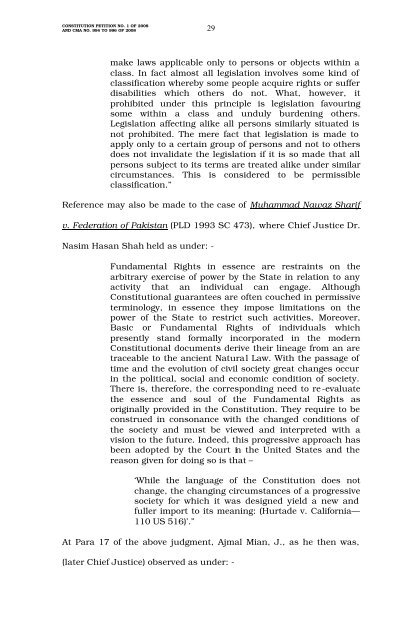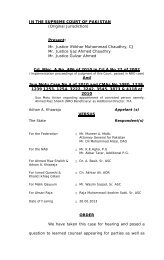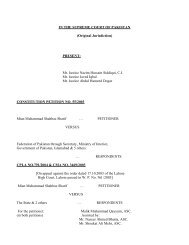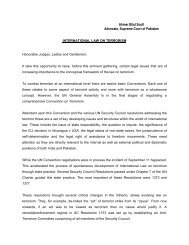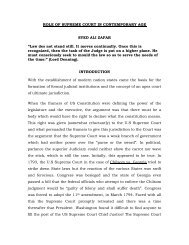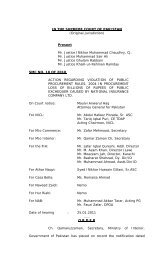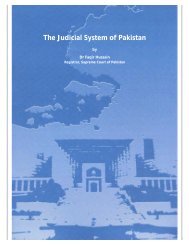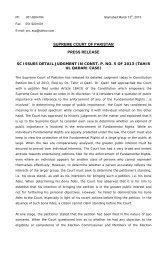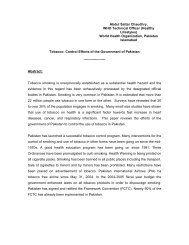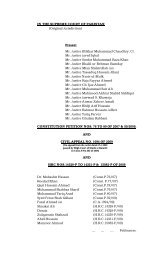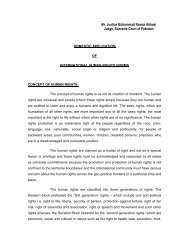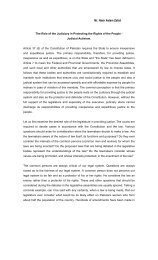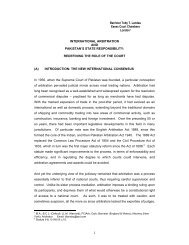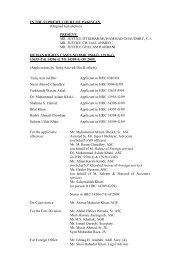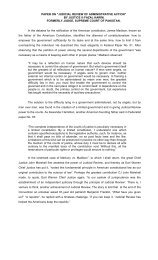MR. JUSTICE ABDUL HAMEED DOGAR, HCJ MR. JUSTICE FAQIR ...
MR. JUSTICE ABDUL HAMEED DOGAR, HCJ MR. JUSTICE FAQIR ...
MR. JUSTICE ABDUL HAMEED DOGAR, HCJ MR. JUSTICE FAQIR ...
You also want an ePaper? Increase the reach of your titles
YUMPU automatically turns print PDFs into web optimized ePapers that Google loves.
CONSTITUTION PETITION NO. 1 OF 2008<br />
AND CMA NO. 994 TO 996 OF 2008 29<br />
make laws applicable only to persons or objects within a<br />
class. In fact almost all legislation involves some kind of<br />
classification whereby some people acquire rights or suffer<br />
disabilities which others do not. What, however, it<br />
prohibited under this principle is legislation favouring<br />
some within a class and unduly burdening others.<br />
Legislation affecting alike all persons similarly situated is<br />
not prohibited. The mere fact that legislation is made to<br />
apply only to a certain group of persons and not to others<br />
does not invalidate the legislation if it is so made that all<br />
persons subject to its terms are treated alike under similar<br />
circumstances. This is considered to be permissible<br />
classification.”<br />
Reference may also be made to the case of Muhammad Nawaz Sharif<br />
v. Federation of Pakistan (PLD 1993 SC 473), where Chief Justice Dr.<br />
Nasim Hasan Shah held as under: -<br />
Fundamental Rights in essence are restraints on the<br />
arbitrary exercise of power by the State in relation to any<br />
activity that an individual can engage. Although<br />
Constitutional guarantees are often couched in permissive<br />
terminology, in essence they impose limitations on the<br />
power of the State to restrict such activities, Moreover,<br />
Basic or Fundamental Rights of individuals which<br />
presently stand formally incorporated in the modern<br />
Constitutional documents derive their lineage from an are<br />
traceable to the ancient Natural Law. With the passage of<br />
time and the evolution of civil society great changes occur<br />
in the political, social and economic condition of society.<br />
There is, therefore, the corresponding need to re-evaluate<br />
the essence and soul of the Fundamental Rights as<br />
originally provided in the Constitution. They require to be<br />
construed in consonance with the changed conditions of<br />
the society and must be viewed and interpreted with a<br />
vision to the future. Indeed, this progressive approach has<br />
been adopted by the Court in the United States and the<br />
reason given for doing so is that –<br />
‘While the language of the Constitution does not<br />
change, the changing circumstances of a progressive<br />
society for which it was designed yield a new and<br />
fuller import to its meaning: (Hurtade v. California—<br />
110 US 516)’.”<br />
At Para 17 of the above judgment, Ajmal Mian, J., as he then was,<br />
(later Chief Justice) observed as under: -


